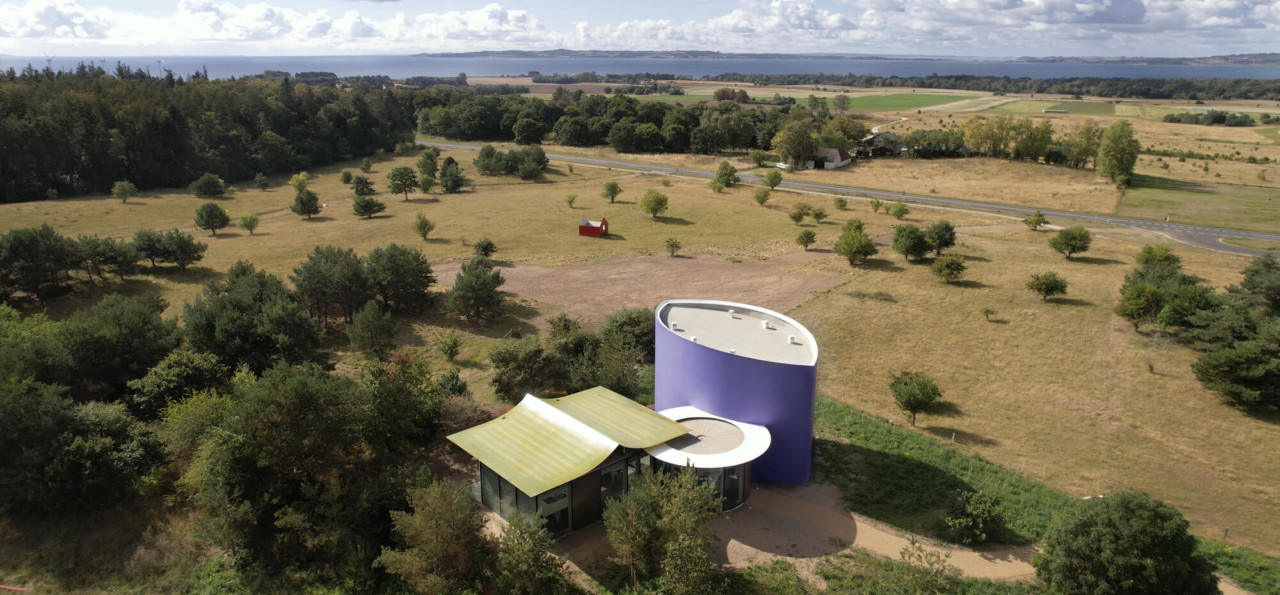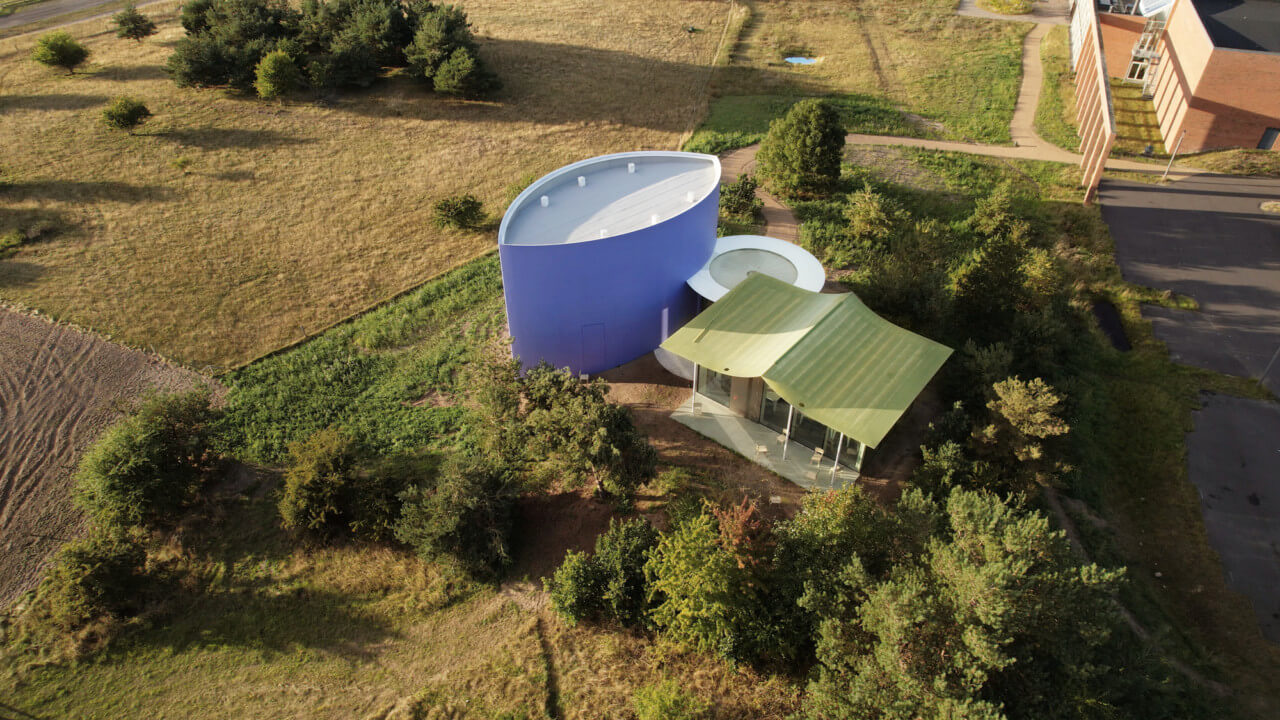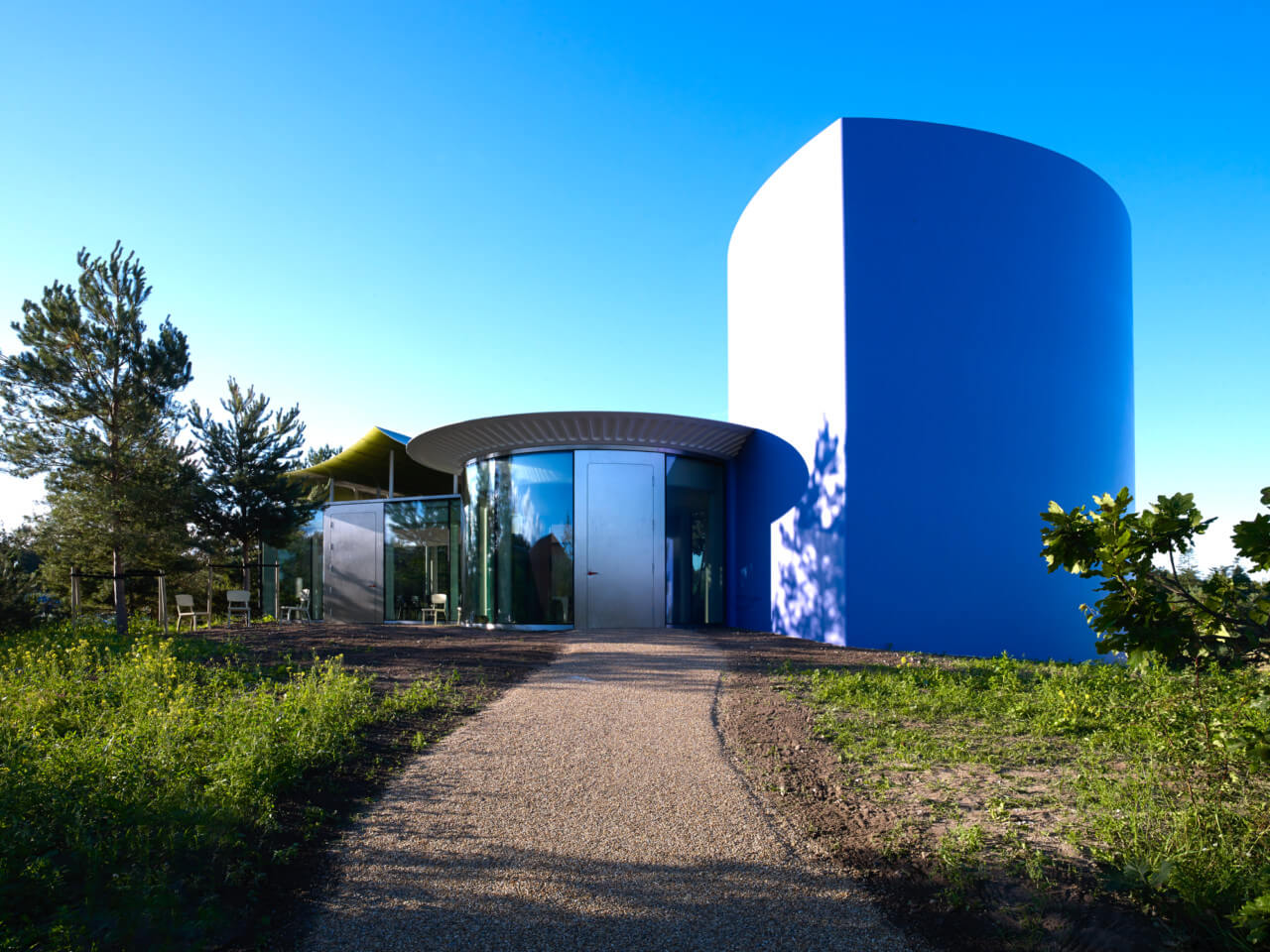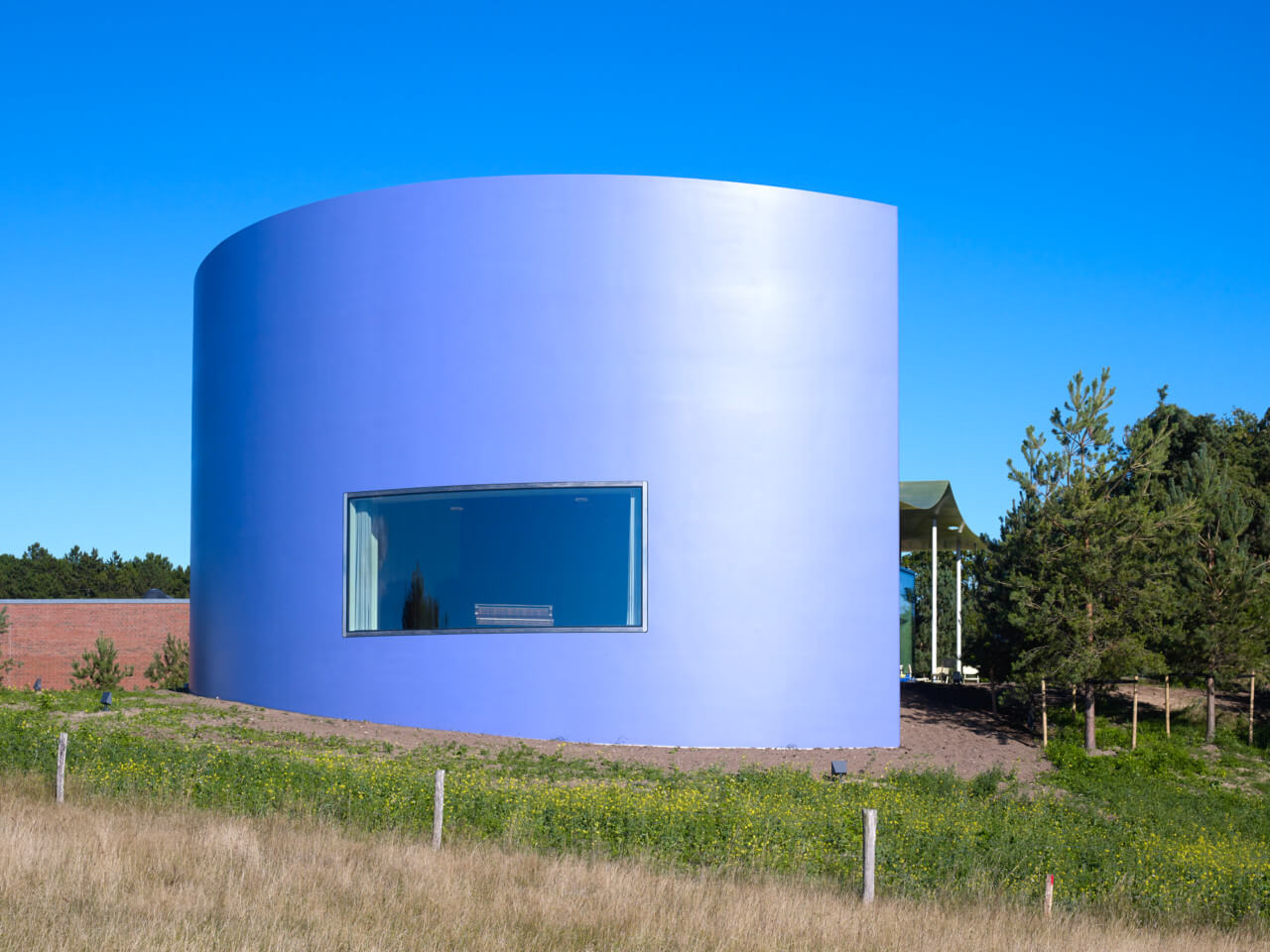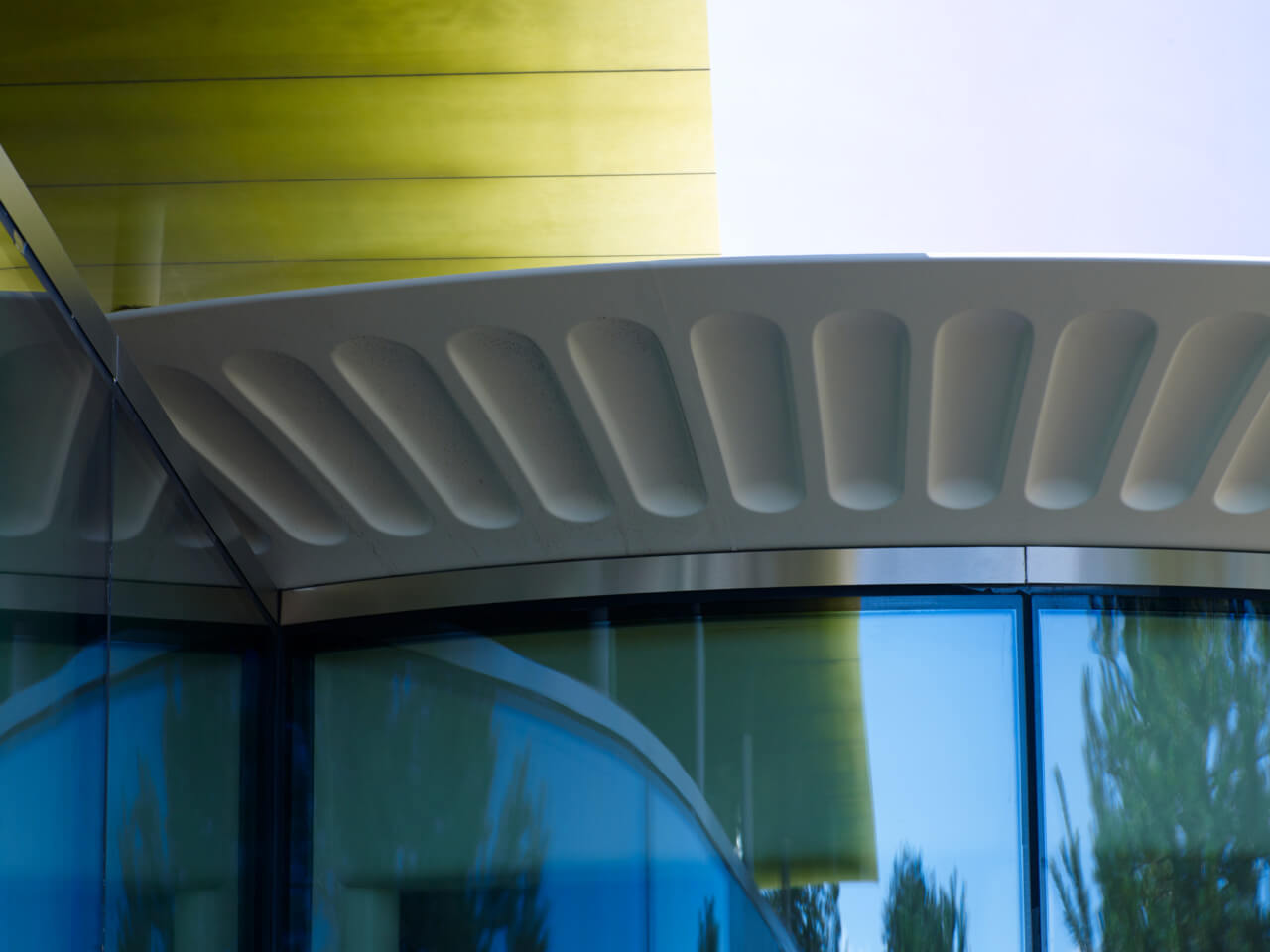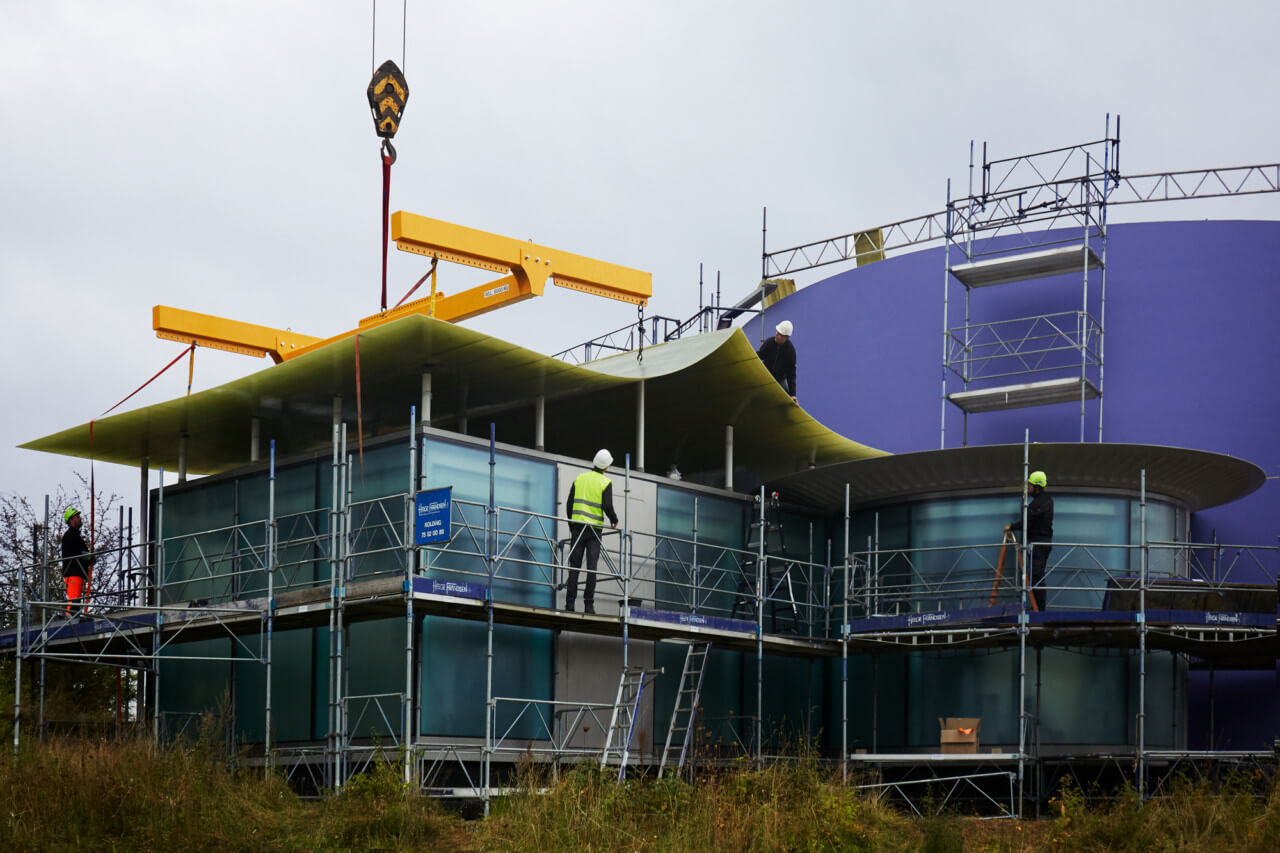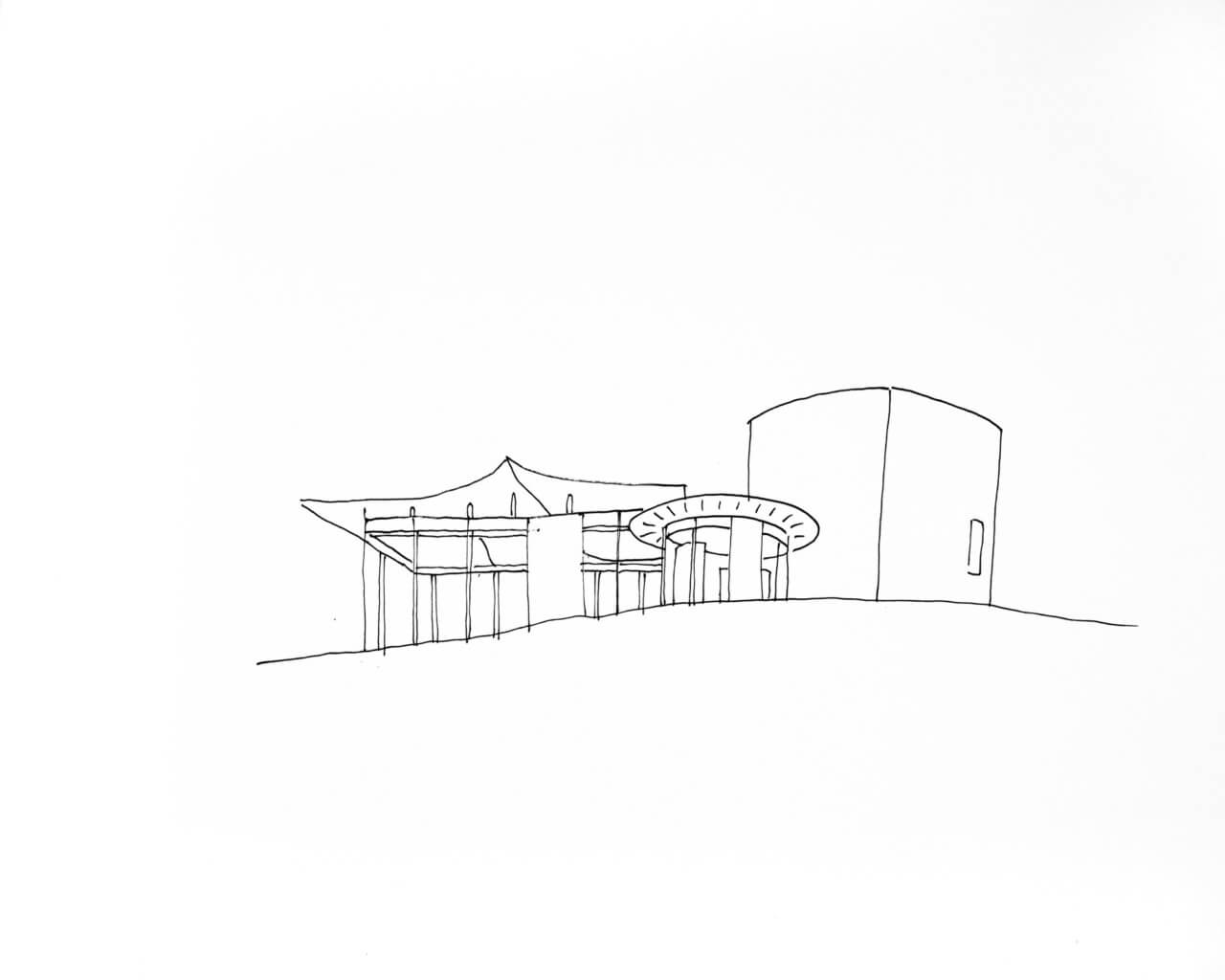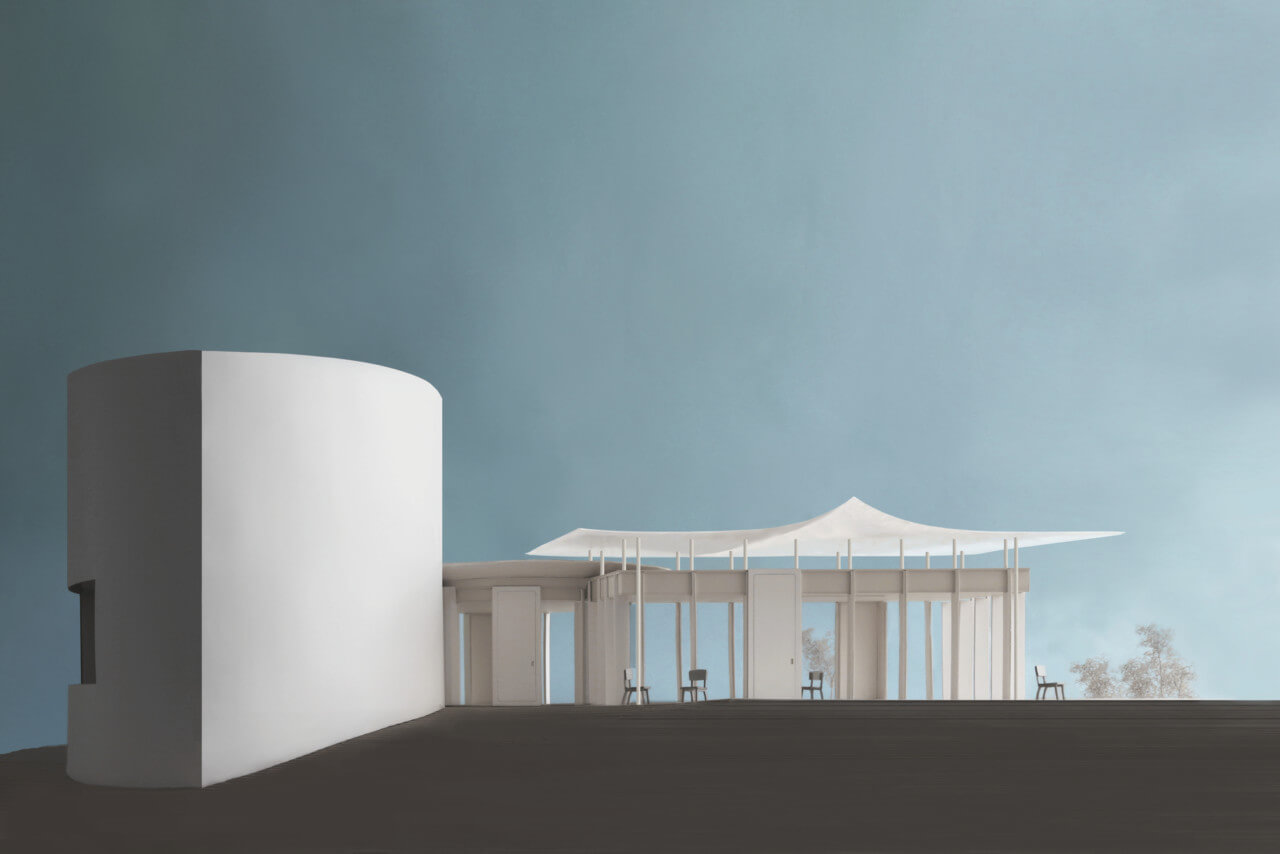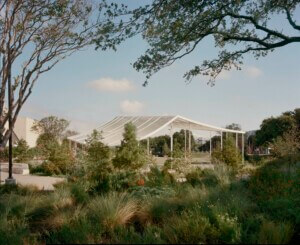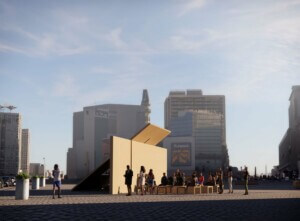A trio of longtime frequent collaborators—RIBA Stirling Prize–winning firm Caruso St John Architects, venerable Danish textile brand Kvadrat, and German sculptor and photographer Thomas Demand—have come together for a new project that’s the architectural equivalent of three old friends getting together for a huddle to have a bit of fun and create something both purposeful and gleefully off-kilter.
Completed earlier this fall on Kvadrat’s dune-sculpted campus in Ebeltoft, a historic port town-slash-summer holiday hotspot on the central east coast of Denmark, The Triple Folly is a tripartite structure hosting conference and hospitality facilities for the 54-year-old company. While the building has a practical purpose and isn’t simply ornamental, its moniker is certainly apt. When viewed from above, the three distinct forms of the whimsical construction come into full view: two low-slung glazed volumes are topped with what are clearly paper products—a lined yellow legal pad creased in the middle and a colossal ribbed disposable plate—joined by an immense, triple-height, violet-hued structure that bears semblance to the hats worn by drug store soda jerks and diner cooks in 1950s-era America.
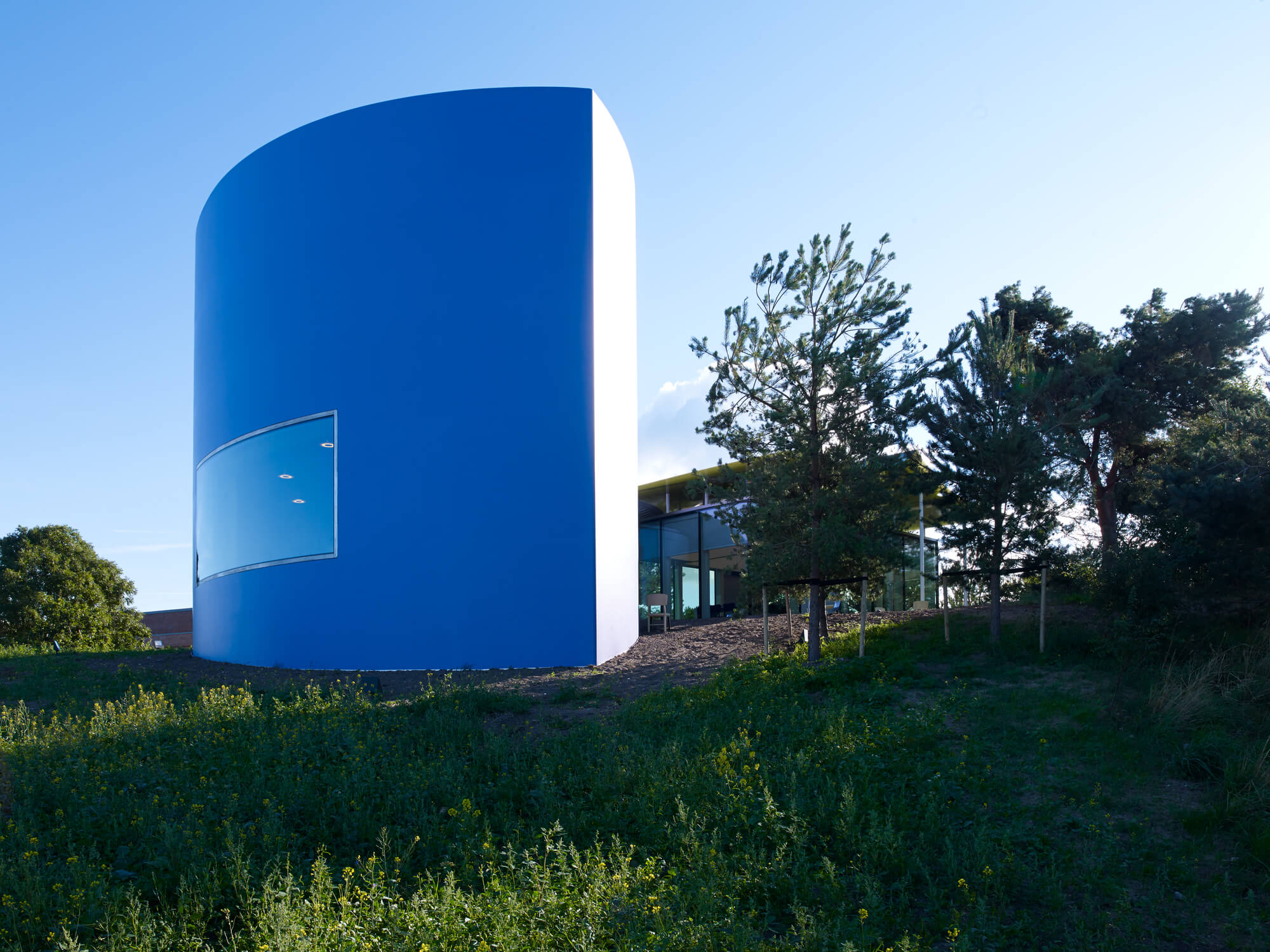
Each of these Paul Bunyan–scale forms, fabricated from fiberglass and steel, represent a “found” paper object developed by Demand, who is based in Berlin and Los Angeles and best known for his ephemeral sculptures constructed from cardboard and paper, which he photographs and then destroys. The Triple Folly, developed in close collaboration with Caruso St John, is his first building project.
In a press release, Kvadrat described the new pavilion as both an architectural “still life” and a Gesamtkunstwerk, a German word used to describe a “total work of art.” Normally, but not exclusively, applied to architecture, a Gesamtkunstwerk is what results from the synthesis of different art forms to create a single, cohesive artistic creation. In addition to the building itself, the pavilion’s interiors—including chairs, tables, lamps, and even door handles—were co-created by Demand and Caruso St John.
Inside Demand’s soaring “hat” volume, visitors will find a spacious lounge space dominated by a monumental artwork crafted from suspended heavy wool threads by German conceptual artist Rosemarie Trockel. Entitled Yes, the piece “works to elevate acoustic comfort” per Kvadrat, and was acquired by the brand in 2006 with the intention that it be displayed at its Ebeltoft headquarters. The elliptical form of the structure is an intentional one as it was designed to accommodate Trockel’s work.
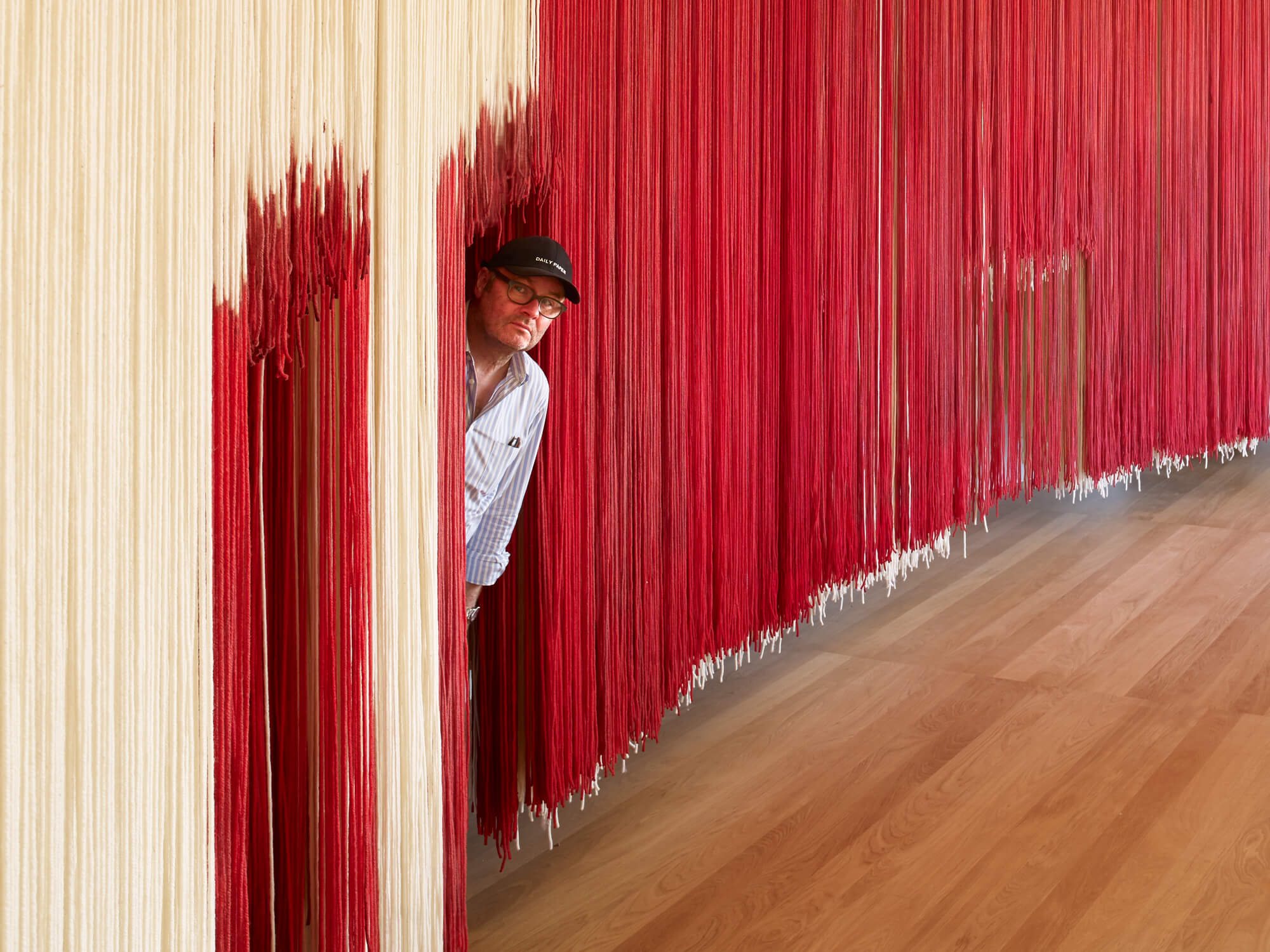

Adjacent to the big violet hat, a legal pad–topped volume is a dedicated meeting space while the final element, the “plate,” houses a cylindrical dining area and kitchen. All three distinct volumes have their own separate entrances, “leaving it up to visitors to experience the dialogue between art and architecture as they see fit,” explained Kvadrat.
As mentioned, Caruso St John and Kvadrat have both frequently worked with Demand in the past, with The Triple Folly serving as a sort of fanciful pièce de resistance—an exclamation point for Kvadrat’s coastal campus, which also features site-specific permanent works from Olafur Eliasson and Günther Vogt and Roman Signer on public display. Past collaborations between Demand and Kvadrat include a retrospective exhibition at Museum Leuven in Belgium entitled House of Card, the Daily Flower Report calendar, and Saal, a site-specific installation staged at the Mies van der Rohe–designed (and Chipperfield Architects refreshed) Neu Nationalgalerie in Berlin.
As another longtime collaborator, Caruso St John has designed multiple Demand exhibitions, including at Kunsthaus Bregenz in Austria, Florence’s Galleria d’Arte, Pallazo Pitti, and at Neu Nationalgalerie. The two also came together for Nagelhaus, a competition-winning public art installation for Escher Wyss Platz in Zurich that was never ultimately realized. A full-scale mock-up of Nagelhaus, however, was erected at the 2010 Venice Architecture Biennale. Outside of their respective collaborations with Demand, Kvadrat and Caruso St John teamed for the Kvadrat Soft Cells Atelier in Copenhagen.
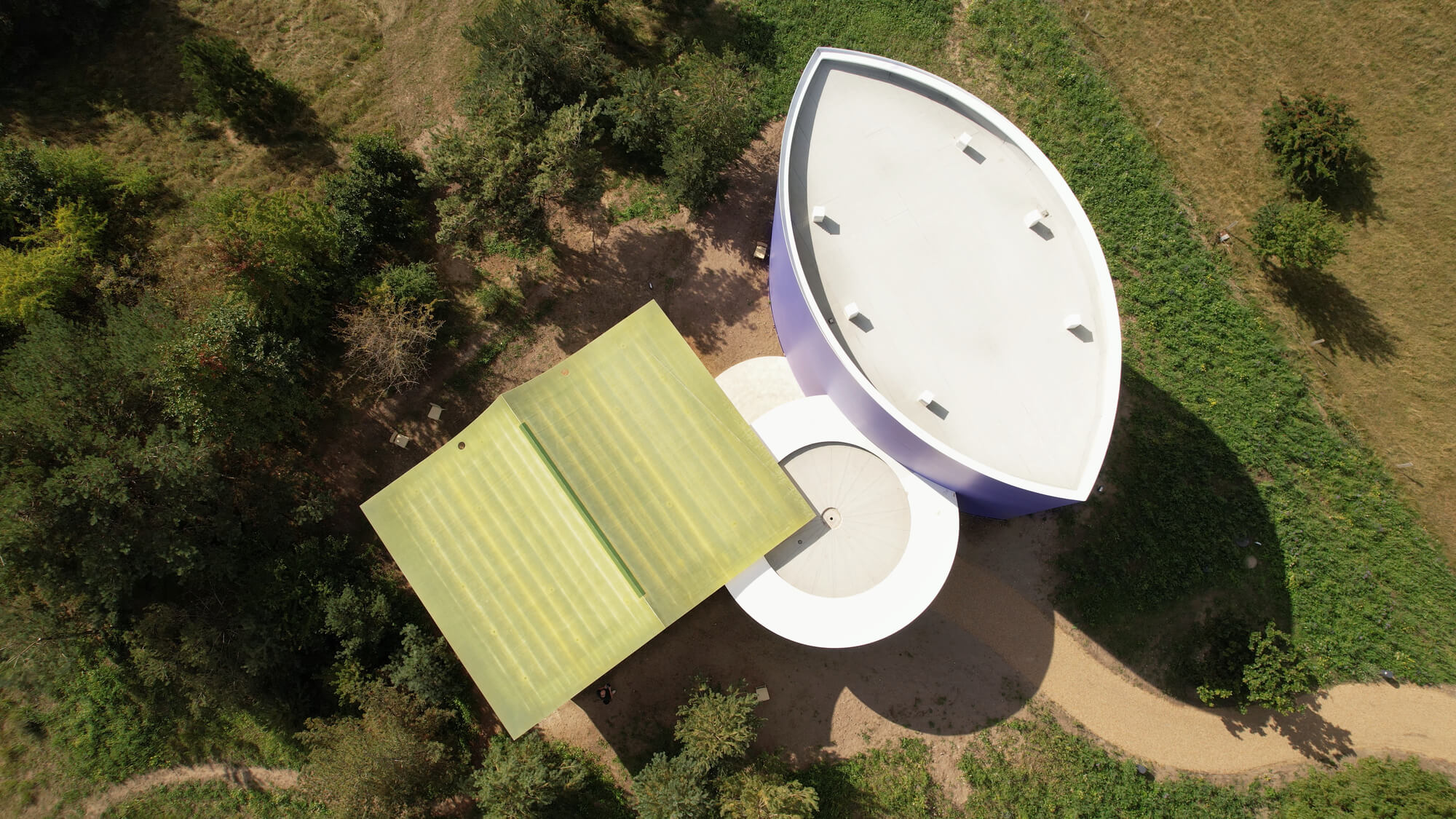
For those who don’t have rural coast of Jutland in their immediate travel plans, Demand’s House of Card (with Martin Boyce, Rirkrit Tiravanija, Caruso St John) is now on view at Toronto’s Museum of Contemporary Art through January 8, 2023.






